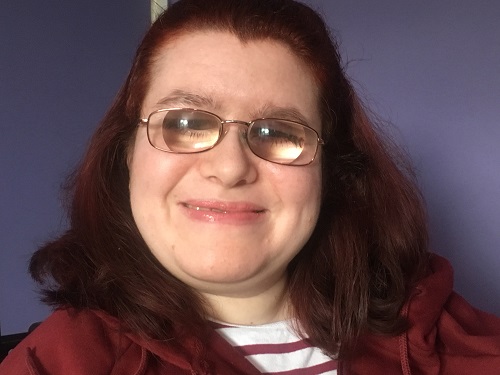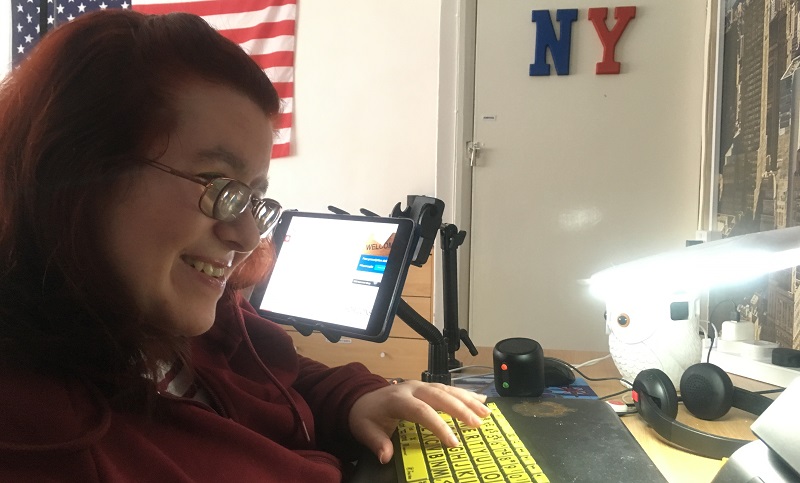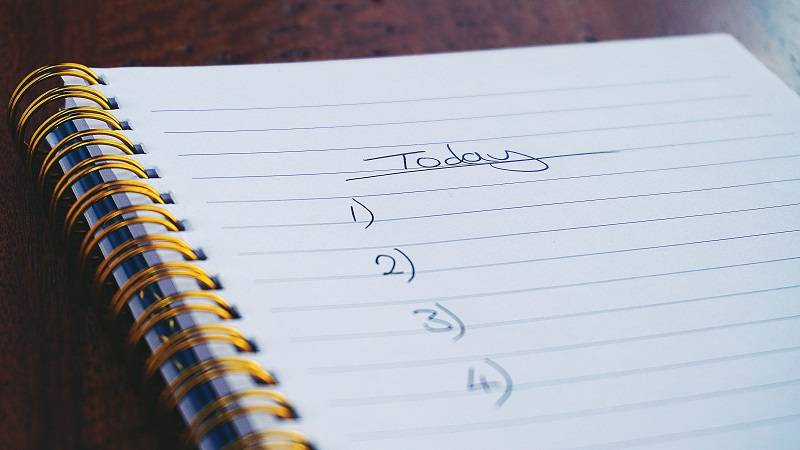
Why time is so precious when you’re disabled
People say that life is too short and time is more valuable than money. This is true for many different reasons, but for disabled people and those with health conditions, it’s even more important. Why? Because day-to-day tasks usually take longer when you have a disability. Our writer and wheelchair user Emma Purcell shares her blog post on exactly why time is so precious for someone with a disability.
Many disabled people find it difficult to carve out enough time to achieve things and enjoy life. Non-disabled people don’t realise the time it takes to complete tasks that they take for granted, such as dressing, washing, eating, reading, writing and travelling.
Below are five situations I have to encounter every day because of my disability that can be time-consuming and, therefore, don’t allow me to enjoy all the available hours in a day as many others do.
Personal care
My personal care takes up a large proportion of my day. For most people, going to the toilet, showering and dressing can take minutes. For me, on a normal day, I spend up to three hours getting ready.
Morning care
In the morning, it takes me around an hour to get washed, dressed and take my medication.
It begins with taking my sleep system out, which includes a knee block, bracket supports and cushions. After that, I use baby wipes to wash my bottom and armpits, and then put my clothes on. This is all done lying on my bed.
Once dressed, I get hoisted into my wheelchair, do up my seatbelt and foot straps and put on a jumper or hoodie if I need it. I then get my hair brushed and put on my glasses.
Next, I head into the lounge to take my medication. One of my meds is Omeprazole, which helps with my gag reflux. I need to take this pill on an empty stomach and therefore need to wait another 30 minutes before having breakfast. Once I’ve eaten, I can then brush my teeth and wipe my face.

Evening care and showers
My normal evening routine takes about 30 minutes. I tend to do my top half in my wheelchair then my bottom half on the bed. I then have to put my sleep system in, take my medication and brush my teeth.
Every other night I have a shower, which can take up to an hour. I prefer to shower in the evenings as it’s easier to put pyjamas on when I’m still damp and I can go straight into bed afterwards.
I hoist onto my shower chair, remove my clothes and go into the shower. That takes about 15 minutes on its own. I then go back into my bedroom to get dry and dressed.
This routine includes additional jobs too, such as drying my hair and cutting my nails. On occasions, I also dye my hair, which adds another half an hour on top.
Toileting
Since being fitted with my suprapubic catheter in 2018, I’m lucky to not need to access the toilet as much as I used to. Instead, I just empty my leg bag a few times a day, which only takes a minute.
Before my catheter, I would have to hoist onto the toilet four to five times a day, which took up to 20 minutes each time.
Nowadays, I only tend to use the toilet once a day to open my bowels. This can take up to 30 minutes as I need to wash my bottom with wipes after and, due to my pelvic posture, cleaning me can take a bit longer.
Overall, I generally carry out all the same daily tasks as everyone else, but need to use mobility aids to help me and it takes more time to complete.
Physiotherapy
I also do physiotherapy on a weekly basis. Before the Covid-19 pandemic, I was attending hour-long sessions at my former college, Treloar’s, but I’m currently trying to do 10 minutes of stretches on my bed.
Mealtimes
I have some difficulties eating, which means it takes me slightly longer to eat than it would for most people. Due to my gag reflux, I need my food cut up in bitesize pieces.
I also can’t have large mouthfuls together (e.g a portion of meat, potato and veg on my fork at the same time). Plus, it takes me longer to chew certain foods, such as beef and pork.
Added to that, and not specifically disability-related, I have learnt to not eat my food too quickly. Back at school, I was getting ready for one of my science GCSE exams.
My personal care took longer than expected, so I ate some cereal super speedily. Halfway through my exam, I managed to projectile vomit all over myself and I had to forfeit the rest of the exam.
Surprisingly, even though I only completed two-thirds of it, I still got a B. Since that incident, I’ve learnt to take as long as necessary to finish a meal, which usually takes me up to 30 minutes.
Working

As a freelance journalist and blogger, I do a lot of writing and editing. I only have the use of one arm and registered blind, so my workload is slightly more time-consuming than it might be for someone else.
Typing instead of using dictation
I have attempted dictation software in the past, but I found it too complicated. It also makes too many mistakes, which I have to edit later. Plus, I have live-in care, so I don’t have much privacy when speaking aloud documents and messages.
Despite the length of time it may take me, I still prefer typing. I just wish I could learn to touch type one-handed, especially if my eyesight deteriorates more in the future. If anyone can suggest ways of learning to touch-type, please let me know using the contact form on my blog.
Navigating my computer by zooming
Another time-consuming element of work is navigating my devices. As I mentioned in my MacBook accessibility guide, I prefer using the zoom function to find my way around my computer and use speech when reading articles and documents. I’ve never worked out how to use voiceover all the time.
Zooming in does mean it takes me a bit longer to find my way around the screen, especially when it’s a page I’m not familiar with.
Researching online
Many people forget that journalism and blogging isn’t just about writing. Firstly, some content involves doing research beforehand, which takes up a proportion of the time.
The greatest challenge I face with this is having to access different websites or publications. With many sources, I’m not able to see clearly, even with the use of the zoom and voiceover. With others, these functions may not even be compatible. Therefore, it can take me longer to find the relevant information.
Even if the site is accessible, it also takes me time to navigate the content when I can only see a few words at a time. Additionally, in order to be a good, professional journalist, I still prefer to take that extra time to make sure my research is thoroughly done.
Once the article is written, I then need to spend time proofreading, editing and uploading it online. Once online, there are still other bits to include, such as the fonts, hyperlinks, images, videos, categories, tags and SEO.
Overall, when I’m working, a simple 500-word article, which needs to be researched, edited and uploaded online, can take me four to five hours. Then, if I add personal care and mealtimes into my day, that is approximately 10 hours of my day gone.
However, I’m passionate about journalism and I would prefer to take that extra time to write one quality article then rush it and write several, rubbish, sub-standard pieces.

Travelling
Although travelling has been very minimal this year, when I have been out, there are still additional time factors to consider as a disabled person.
Firstly, I use a Motability vehicle that my carers drive me around in. To get in the vehicle takes me several more minutes than somebody not in a wheelchair. I have to go up the ramp, then have four straps attached to my chair and then put on my seatbelt.
When travelling by train, disabled people are advised to arrive 20 minutes before the train departs so that the guard can get the ramp. However, I usually end up spending most of that time still waiting on the platform until a few minutes before the train leaves.
When I use the lifts to go up or downstairs in public places, I often have to waste time waiting for a one to be free because it is packed with able-bodied people who could quite easily use the stairs.
It also irritates me when some buildings have their accessible entrances on the other side of the main entrance, which means I have to go on a longer route to get into the building.
Compromising my time for others
The final dilemma I have to deal with as a disabled person is compromising my time for others, particularly carers.
What people forget is that many disabled people have to work their time around someone else, be it a relative helping with your care or a personal assistant, and maintaining that relationship is a delicate balance.
As a teenager, I wasn’t a morning person and, even now, I’m still more of a night owl. However, as I’ve grown up and my workload has increased, I’ve tried getting up at a reasonable time during the week.
Unfortunately, some carers are opposed to me getting up earlier than necessary as they have to get up even earlier before starting my care.
I could be stricter and just say that this is the time I want to get up and that’s that. But I don’t want the carers being grumpy or stroppy with me, which will bring my mood down too.
In the evening, I can easily stay awake beyond 12am, either finishing work, watching TV, reading a book or playing games. Fortunately, once I’m in bed, I can sit up using my profile bed and continue to do things on my iPad.
The downside is there are certain jobs I find easier on my laptop, so I have to negotiate what needs to be done before I’m in bed and what I can continue once I’m in bed.
I usually have my showers at 9pm and my evening care at 10pm, which sounds reasonable. But this still feels restricted when I still have lots to do.
Plus, I’m sure there are many people who don’t require care but stay up longer when they’re busy or just fancy it. This automatically makes me feel at a disadvantage because of my disability.
Sometimes I feel like I’m still at boarding school and I need a late pass to be able to finish work, watch TV, see friends or go to gigs etc.
All I want is either get up early so that I can get all my work done or be able stay up later to get work completed and not be obligated to have care at a time that suits the carers.
Fortunately for the carers, I’m a fair client and always sacrifice so they can have their rest. I do wish carers would appreciate this more though.
Time management is the key
So, as you can see, time is precious when you’re disabled. I’m sharing this not to be pitied or sympathised, but just to make more people aware that tasks do take longer for me and other disabled people.
Employers, clients, teachers, carers, relatives and friends need to be more understanding and flexible with disabled people when organising jobs, meetings, appointments, classes and social gatherings.
If you are disabled, the key to using your time wisely is time management. Here are five steps you can take to manage your time:
- Be honest with your employer/client about how much work you’re willing and able to do and ask for flexibility if required.
- Create weekly to do lists to keep track of your workload.
- Work out how long your care, mealtimes and other personal commitments take each day then work out how much time you have left for work.
- Compromise fairly with carers so that you both get what you need to have a good working relationship.
- Always make time for leisure activities and socialising – me time is important.
By Emma Purcell at Rock For Disability. You can also follow her on Facebook, Twitter @P94Emma and Pinterest.
More on Disability Horizons…
- Turning my passion for films into a career as a disabled film editor
- Accessible housing: download your FREE guide to finding an accessible home
- Actually I Can: independence and your dreams are possible as a disabled person
- Blind presenter and vlogger Lucy Edwards on being herself and making a difference